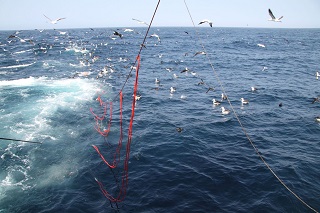
New pilot project assembles EzyStove in Havana

A small new factory where the EzyStove is assembled, has recently started operating in one of Katutura’s informal settlement areas, Havana. After its first commercial debut at the Ongwediva Trade Fair and more recently, at the Windhoek Show, demand has exploded. This prompted Creative Entrepreneurs Solutions (CES) of Ondangwa, in collaboration with a Swedish company, Ergonomidesign, to establish a small manufacturing unit in Windhoek. The EzyStove is an award-winning low-energy stove developed specifically for low-income households. The escalating rate of illegal logging of wood for cooking and the frequent and severe flooding in the North, led to the idea of an energy efficient stove that only uses biomass as fuel.The EzyStove is designed according to the wishes of women who have to cook every day. It is user-friendly and easily assembled. The stove needs only one third of the volume of fuel traditionally burned to cook a meal for a family. The main indicated fuel is dried cow dung but crop residues, small wood splinters and even wood chips, all work equally well. Smoke emmission is reduced by between 60 to 80%. According to Marie Johannsen, CEO of CES, there are currently 475 EzyStove’s that have been distributed for testing in areas such as Gibeon, Windhoek, Outapi and Opuwo amongst others. “We are trying to produce 400,000 stoves to reach 200,000 homesteads and in the process create 300 local assembly jobs to Namibians,” Johannsen informed the Economist. Larger EzyStove’s are also currently being tested at schools for their feeding programmes. The assembly workshop in Havana currently has 100 stoves which will be sold to communities in the Moses Garoeb constituency. It costs N$130 to construct one stove, however, the price of each stove is only N$55 during the pilot project period including two free paper bricks for use as fuel. The project is funded by the Environmental Investment Fund to the tune of N$105,000 and the Pupkewitz Foundation which provided the essential materials for the project. According to Meryl Barry of the Pupkewitz Foundation, plans are underway to promote the stoves in all Pupkewitz Megabuild stores.
The escalating rate of illegal logging of wood for cooking and the frequent and severe flooding in the North, led to the idea of an energy efficient stove that only uses biomass as fuel.The EzyStove is designed according to the wishes of women who have to cook every day. It is user-friendly and easily assembled. The stove needs only one third of the volume of fuel traditionally burned to cook a meal for a family. The main indicated fuel is dried cow dung but crop residues, small wood splinters and even wood chips, all work equally well. Smoke emmission is reduced by between 60 to 80%.
According to Marie Johannsen, CEO of CES, there are currently 475 EzyStove’s that have been distributed for testing in areas such as Gibeon, Windhoek, Outapi and Opuwo amongst others. “We are trying to produce 400,000 stoves to reach 200,000 homesteads and in the process create 300 local assembly jobs to Namibians,” Johannsen informed the Economist. Larger EzyStove’s are also currently being tested at schools for their feeding programmes.
The assembly workshop in Havana currently has 100 stoves which will be sold to communities in the Moses Garoeb constituency. It costs N$130 to construct one stove, however, the price of each stove is only N$55 during the pilot project period including two free paper bricks for use as fuel.
The project is funded by the Environmental Investment Fund to the tune of N$105,000 and the Pupkewitz Foundation which provided the essential materials for the project. According to Meryl Barry of the Pupkewitz Foundation, plans are underway to promote the stoves in all Pupkewitz Megabuild stores.












































